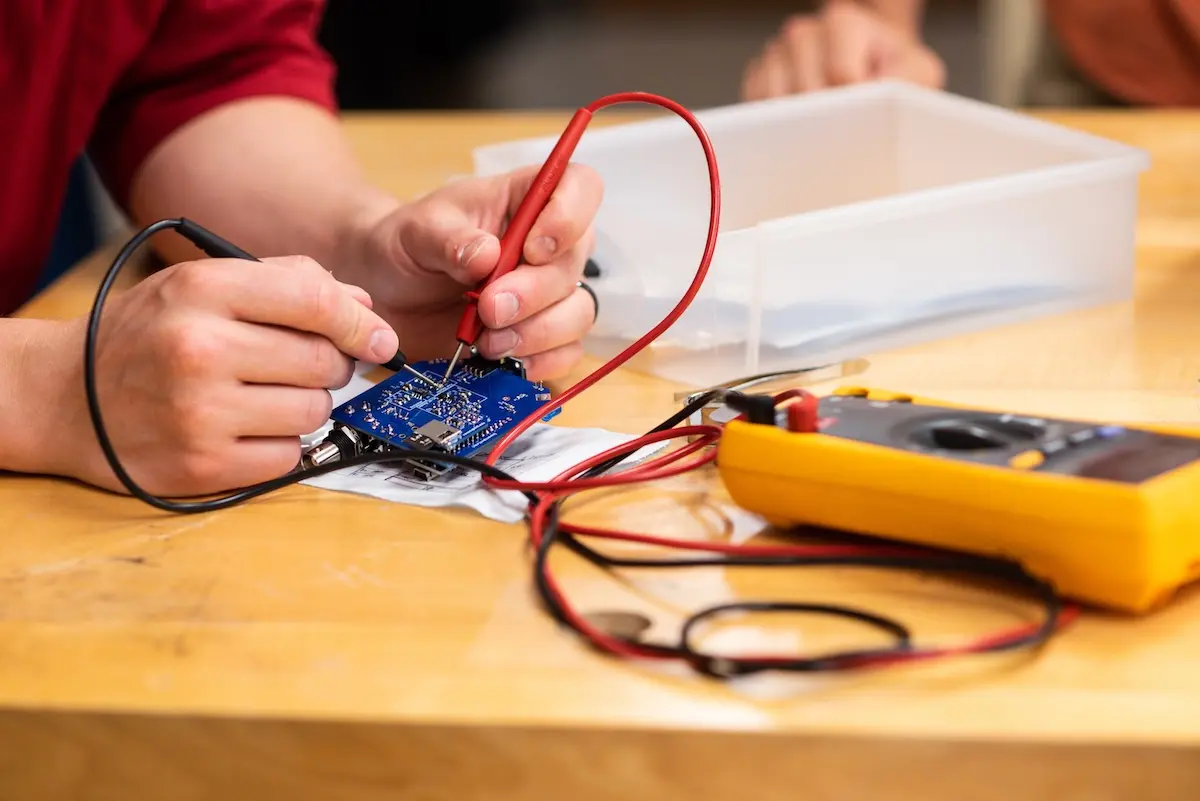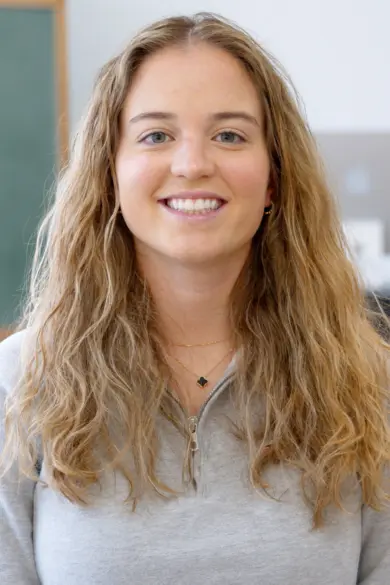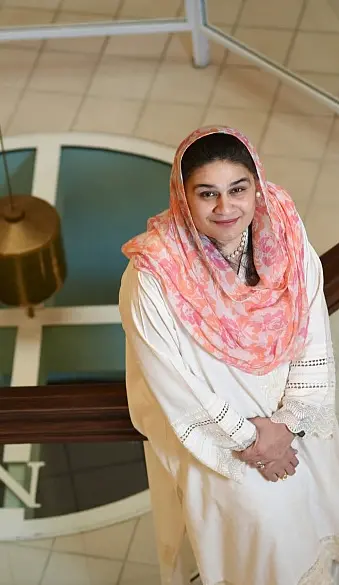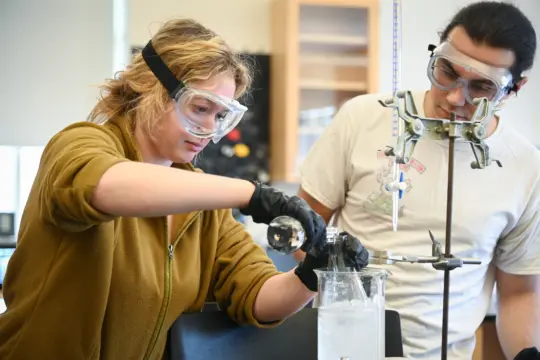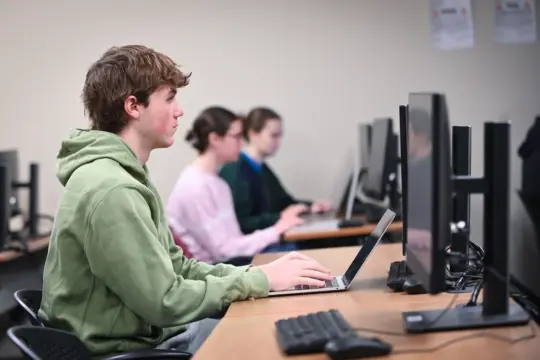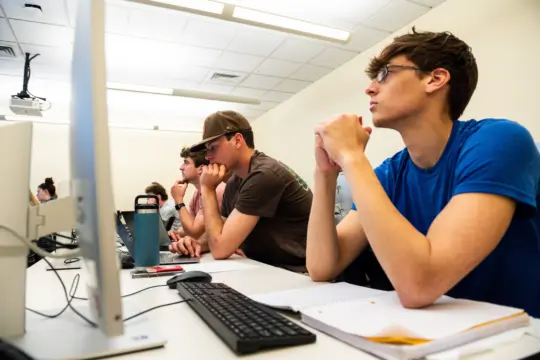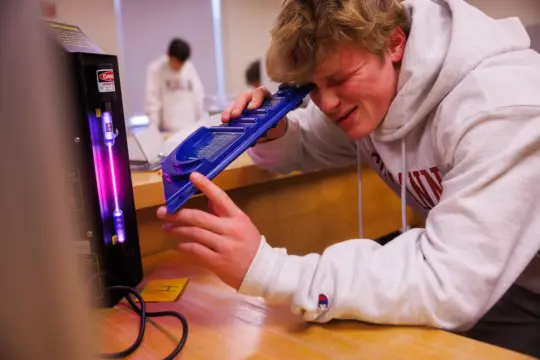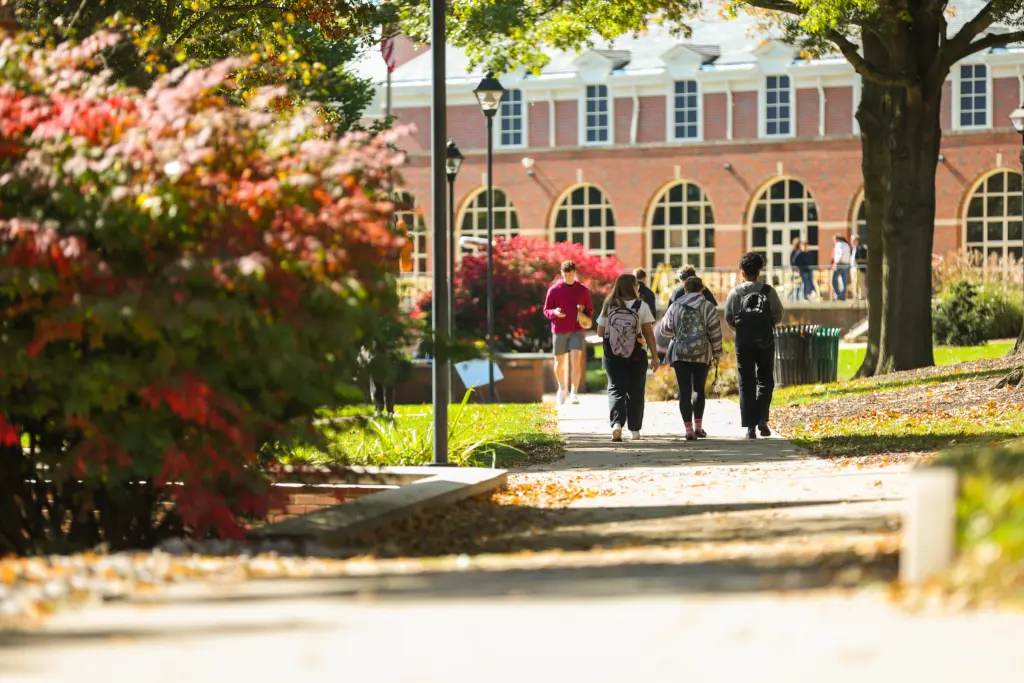Engineering 3+2 Program
Start changing the world sooner with an accelerated engineering degree.
susquehanna and beyond
our Engineering Partners

Columbia University
Engineering concentrations include chemical engineering, electrical engineering, industrial engineering and mechanical engineering.
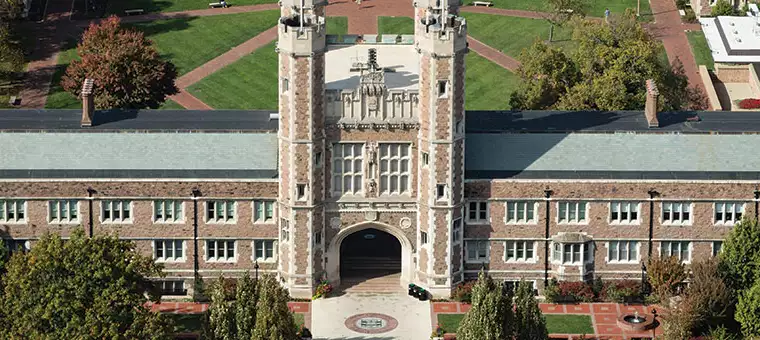
Washington University in St. Louis
Engineering concentrations include biomedical engineering, computer engineering, data science and environmental engineering.
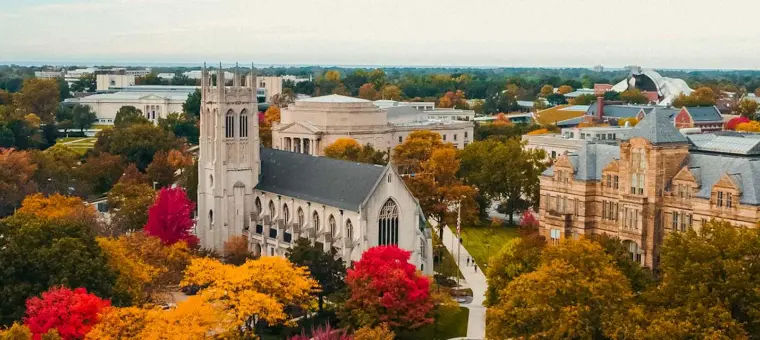
Case Western Reserve University
Engineering concentrations include aerospace engineering, biomedical engineering, civil engineering and materials science.
DOUBLE DEGREES FOR SUSQUEHANNA STUDENTS
The Engineering 3+2 program offers various majors an exciting path toward interdisciplinary studies and, therefore, career readiness. They enhance their academic program with an engineering degree from a prestigious school. For example, Hareem Zain ’19 has powered up his physics major with a Bachelor of Science degree in engineering from Columbia University.
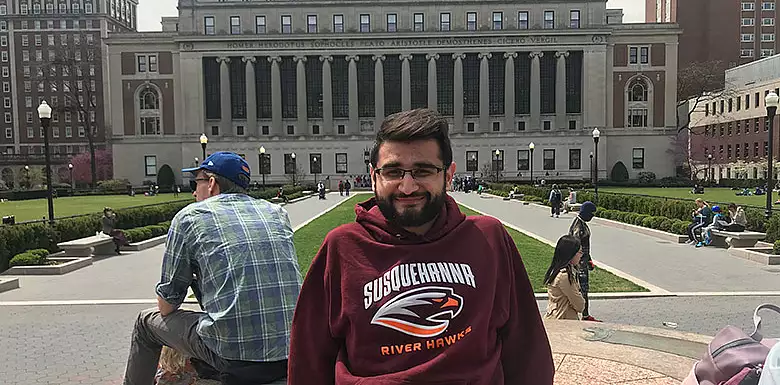
Explore Your Studies
Program Resources
This just an example of a possible 3-year roadmap. Actual course sequences change depending on math placement, AP or transfer credit and student preference. Additionally, some choice of elective courses may be fixed depending on the student’s desired engineering major at one of the three partner institutions.
Learn more about the physics program
1st Year – Fall (18 credits)
- First-year seminar
- Calculus I
- Intro Physics I – Calculus-based
- Language I
1st Year – Spring (20 credits)
- Calculus II
- Intro Physics II – Calculus-based
- Language II
- Principles of Computer Science
- Central Curriculum Elective
2nd Year – Fall (21 credits)
- Linear Algebra
- Newtonian Mechanics
- Mathematical Physics
- General Chemistry I
- Central Curriculum Elective
- GO Prep Class
2nd Year – Spring (21 credits)
- Multivariate Calculus
- Electricity and Magnetism
- Waves and Oscillations
- Central Curriculum Elective
- Central Curriculum Elective
- GO Reflection Class
3rd Year – Fall (22 credits)
- Differential Equations
- Thermodynamics
- Topics in Physics
- Physics Elective
- Central Curriculum Elective
- Capstone I
3rd Year – Spring (22 credits)
- Modern Physics
- Quantum Mechanics
- Physics Elective
- Central Curriculum Elective
- Central Curriculum Elective
- Capstone II
This just an example of a possible 3-year roadmap. Actual course sequences change depending on math placement, AP or transfer credit and student preference. Additionally, some choice of elective courses may be fixed depending on the student’s desired engineering major at one of the three partner institutions.
Learn more about the chemistry program
1st Year – Fall (18 credits)
- First-year seminar
- Calculus I
- General Chemistry I
- Writing and Thinking
- Language I
1st Year – Spring (20 credits)
- Calculus II
- Organic Chemistry I
- Language II
- Cell Biology and Genetics
- Economics
2nd Year – Fall (22 credits)
- Linear Algebra
- Organic Chemistry II
- Introductory Physics I (calculus based)
- Introduction to Programming
- Central Curriculum Elective
- GO Prep Class
- Chemistry Seminar
2nd Year – Spring (22 credits)
- Multivariate Calculus
- Structure and Reactivity
- Methods of Chemical Analysis
- Introductory Physics II (calculus based)
- Central Curriculum Elective
- GO Reflection Class
- Chemistry Seminar
3rd Year – Fall (23 credits)
- Differential Equations
- Physical Chemistry I
- Inorganic Chemistry
- Central Curriculum Elective
- Central Curriculum Elective
- Chemistry Research Experience
- Chemistry Seminar
3rd Year – Spring (19 credits)
- Physical Chemistry II
- Central Curriculum Elective
- Central Curriculum Elective
- Central Curriculum Elective
- Chemistry Capstone
- Chemistry Seminar
This just an example of a possible 3-year roadmap. Actual course sequences change depending on math placement, AP or transfer credit and student preference. Additionally, some choice of elective courses may be fixed depending on the student’s desired engineering major at one of the three partner institutions.
Learn more about the mathematics program
1st Year – Fall (18 credits)
- First-year seminar
- Math 112 Calculus II
- Central Curriculum Elective
- Writing and Thinking
- Language I
1st Year – Spring (20 credits)
- Math 201 Linear Algebra
- Math 180 Statistical Methods
- Language II
- Principles of Computer Science
- Central Curriculum Elective
2nd Year – Fall (21 credits)
- Math 231 Foundations of Analysis (2 credits)
- Intro Physics I calc-based
- MATH 221 Discrete Structures
- General Chemistry I
- Central Curriculum Elective
- GO Prep Class
- 2 Credit Elective
2nd Year – Spring (21 credits)
- MATH 211 Multivariate Calculus
- Physics II Calc-based
- Waves and Oscillations
- MATH 321 Abstract Algebra
- Central Curriculum Elective
- GO Reflection Class
3rd Year – Fall (22 credits)
- MATH 353 Differential Equations
- Central Curriculum Elective
- MATH 300 Elective or PHYS 405 Mathematical Physics
- Math 400 Elective
- Central Curriculum Elective
- 2 Credit Elective
3rd Year – Spring (22 credits)
- Math 400 Elective
- Math 500 Capstone
- Waves and Oscillations
- Central Curriculum Elective
- Central Curriculum Elective
- 2 credit Elective
This just an example of a possible 3-year roadmap. Actual course sequences change depending on math placement, AP or transfer credit and student preference. Additionally, some choice of elective courses may be fixed depending on the student’s desired engineering major at one of the three partner institutions.
Learn more about the computer science program
1st Year – Fall (18 credits)
- First-year seminar
- Calculus I
- CSCI 181 Principles of Computer Science
- Writing and Thinking
1st Year – Spring (20 credits)
- Calculus II
- CSCI 281 Data Structures
- Language II
- Central Curriculum Elective
- Central Curriculum Elective
2nd Year – Fall (21 credits)
- Linear Algebra
- Physics I
- CSCI 282 Computer Organization
- General Chemistry I
- Central Curriculum Elective
- GO Prep Class
2nd Year – Spring (21 credits)
- CSCI 300+ Elective
- Math 221 Discrete Structures
- Waves and Oscillations
- Physics II
- Central Curriculum Elective
- GO Reflection Class
3rd Year – Fall (22 credits)
- MATH 180 Statistical Methods
- CSCI 300+ Elective
- CSCI 300+ Elective
- CSCI 300+ Elective (2 credit)
- Central Curriculum Elective
3rd Year – Spring (22 credits)
- CSCI 381 Algorithms
- CSCI 300+ Elective
- CSCI 300+ Elective (2 credit)
- Central Curriculum Elective
- Central Curriculum Elective
- CSCI Capstone
Where Passion Meets Purpose
Straight from the Nest
“Because Susquehanna is a small campus, I have a lot of opportunities to have personalized experiences with my professors.”
— Lauren Edwards ’25
“Students who take advantage of the opportunities Susquehanna has to offer will receive the unique combination of a liberal arts and sciences education, and an engineering degree from one of three leading universities in the country.”
— Samya Zain, Professor of Physics
Frequently Asked Questions
Aerospace Engineering (Case Western Reserve)
Applied Mathematics (Columbia)
Applied Physics (Columbia)
Biomedical Engineering (Columbia, Washington U., Case Western Reserve)
Chemical Engineering (Columbia, Washington U., Case Western Reserve)
Civil Engineering (Columbia, Case Western Reserve)
Computer Engineering (Columbia, Washington U., Case Western Reserve)
Computer Science (Columbia, Washington U.)
Data Science (Washington U.)
Earth and Environmental Engineering (Columbia)
Electrical Engineering (Columbia, Washington U., Case Western Reserve)
Engineering Mechanics (Columbia)
Engineering Physics (Case Western Reserve)
Environmental Engineering (Washington U.)
Industrial Engineering (Columbia)
Macromolecular Science & Engineering (Case Western Reserve)
Materials Science & Engineering (Columbia, Case Western Reserve)
Mechanical Engineering (Columbia, Washington U., Case Western Reserve)
Operations Research (Columbia)
Systems Science & Engineering (Washington U.)
Yes. For example, to take full advantage of varsity athletics, study abroad, internships or any other aspect of Susquehanna, you are welcome to apply for dual degree admission in your fourth year. Check each partner university’s website linked above for more information.
Although all three partner engineering schools have engineering master’s degree options, the process of applying to these master’s programs is separate from the 3+2 dual degree program. You potentially can earn a master’s degree by adding one more year to your joint degree program. Applying to any of the master’s programs would be done at the partner institution after the bachelor’s degree is attained.
Susquehanna’s 3+2 dual degree program has a great success rate. To date: (1) all students who have applied to partner institutions have been accepted; (2) all students who have gone to “+2” portion of programs have graduated, or are in the process; (3) all students have had jobs lined up before graduation; and (4) Susquehanna students also have a good track record of getting the “3” part actually done in three years … that success partly is due to the support that students receive from two advisors (one in your major and one separate for the 3+2 program).
In a transfer, you stop pursuit of the undergraduate degree at one school, transfer all possible credits to another school, and continue pursuit of your undergraduate degree at the new school. In a dual degree program, you spend some time at your home institution, and some time at another university to study engineering, but enough time at each institution to complete liberal arts and engineering degrees. The efficiency of earning both kinds of degrees is maximized by the dual degree partnership, which includes an agreement that each institution will count some of the other school’s credits for its degree requirements.
Successfully completing specified coursework at Susquehanna qualifies you to apply for dual degree admission to one of our cooperative programs in your third year. Before that time, valuable guidance is provided by Susquehanna’s 3+2 engineering advisor.
For Case Western University, students must earn an overall and pre-engineering GPA of 3.0 or higher, as calculated by Case Western.
For Columbia University, students must earn a minimum grade of B on the first attempt in each prerequisite course specified by Columbia in order to have priority approval for entrance to Columbia for the 3+2 program. An overall and pre-engineering GPA of 3.30 or higher, as calculated by Columbia, is required. Additionally, the minimum grade for each pre-engineering science or math course must be a B (3.0) or better on the first attempt.
For Washington University in St. Louis, students must earn an overall and pre-engineering GPA of 3.25 or higher, as calculated by Washington.
Each institution reserves the right to consider any applicant information that may be of concern — e.g., a violation of academic integrity. Barring any such serious problem, students who satisfy application requirements are admitted.
Yes. At the time you apply for dual degree admission, U.S. citizens and permanent residents are eligible to apply for need-based financial aid by submitting the FAFSA and the CSS Profile. The amount of aid ranges up to the full cost of attendance, though you are not guaranteed the same financial aid package you receive at Susquehanna. Merit-based scholarships may be available at some engineering schools and could require separate applications. Although international students are not eligible for need-based financial aid, they could be eligible for scholarships at some engineering schools. Check each university’s website linked above for more information.
Any financial aid received from the engineering schools is up to the discretion of those institutions and is not decided in any way by Susquehanna.
While they do not require you to live in university housing, they often have space to assist you on or off campus. Check each university’s website linked above for more information.
Yes, as a 3+2 student, Susquehanna will allow you to participate in the commencement ceremony with your peers, however your degree will not be conferred until you complete the requirements of your engineering program.
RIVER HAWKS FIND THAT 3+2=LUCRATIVE CAREERS
Susquehanna faculty and students from the chemistry, math and physics programs discuss how the 3+2 Engineering program has forged convergent career paths. The panel shares their experiences, as well as tips for fellow SU students’ success.
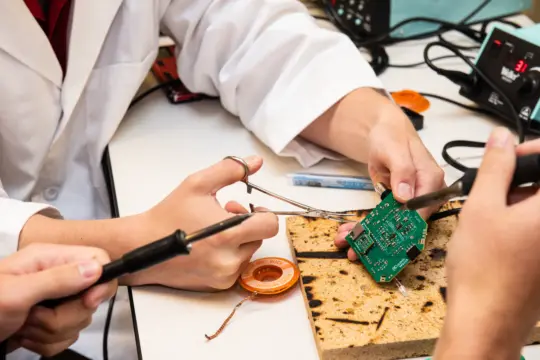
TAKE A VIRTUAL TOUR
Launch Fisher Hall – Academics & Student SupportHave Questions?
Contact Us
Engineering 3+2 Programs
514 University Ave.
Selinsgrove, Pa. 17870
Location
152 Fisher Hall
Department Head
Dr. Carl Faust
570-372-4471
